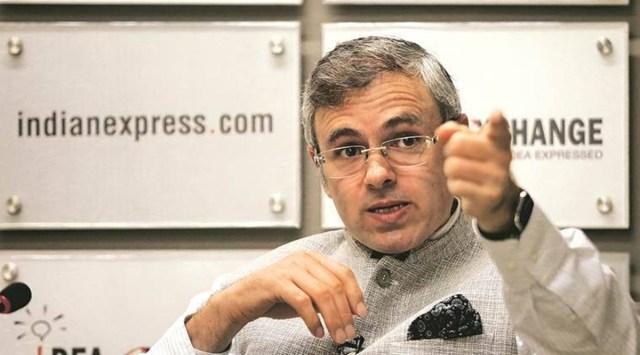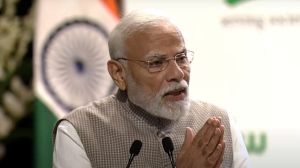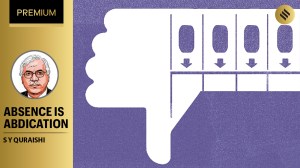Omar: Drug addiction in J&K a crisis, govt is letting problem fester
His comments come in the backdrop of The Indian Express investigation of the pandemic of drug addiction wreaking havoc across the Kashmir Valley.
 National Conference leader Omar Abdullah
National Conference leader Omar Abdullah National Conference (NC) leader Omar Abdullah on Friday said the government was letting the drug addiction problem in Jammu and Kashmir “fester” by not acknowledging it.
“Firstly, there is an element of regret that it has taken us this long to wake up to the scale of the problem. It has been more than 10 years since I spoke about it. I had heard from youngsters about what they were using as drugs.
The one that shocked me the most was shoe polish,” Abdullah told The Indian Express in an interview. “They (the government) are more sensitive to criticism than perhaps any elected government. There is no acknowledgement of the problem. The government is simply happy to let this continue and fester. You have to ask yourself why.”
His comments come in the backdrop of The Indian Express investigation of the pandemic of drug addiction wreaking havoc across the Kashmir Valley. The three-part series revealed how the crisis is stretching the public health system to its limits, clogging hospitals and clinics and filling up detention centres with mostly young men. It also placed the spotlight on how FIRs are piling up, taking seizure levels, particularly of heroin, to a new record.
Criticising the Union government and the J&K administration, Abdullah said, “We hear the Home Minister of India and others saying that militancy levels are at record low. So, you would expect the J&K Police to divert its attention to basic policing — crime and the problem of drugs. If the problem is not being addressed, the lion’s share of the blame will have to go to the police.”
Abdullah, the chief minister of the former state of J&K, said this was not just a problem for the government to solve. “Unless civil society and religious leaders get involved, the problem will not go away. I think the government also needs to do more to address the nexus that is making drugs available and should be stopping it. But I hear from colleagues that people from the government’s side are actively encouraging it. This is not everywhere but enough to be worried about. A trade like this will not flourish if the government is committed to clamping down on it. The government is lacking somewhere in terms of converting its intent into action. The police have to be at the forefront of this, and they have no excuse now because law and order is clearly not a problem for them.”
Explaining why he thinks J&K is in the grip of drug addiction, Abdullah said, “J&K has not been the most peaceful normal place for 30-plus years. Studies have shown that there has been a lot of psychological damage done by the violence. I am not making an excuse for it, but the drug problem is one of the channels in which it manifests itself. There is a lot of unaccounted easy cash that floats around, again as a result of the conflict. It is not beyond the realm of possibility that some of that money is finding its way into drug usage.”
With no sign of elections in J&K anytime soon, Abdullah said there was “a lot of anxiety about the disconnect between the general population and the administration”. He said officers on the ground did not know how “to communicate with people” and were “unaware of the topography and geography of J&K”. He said, “Regardless of who they will vote for, they want a say in who governs them. The other thing that is coming through is that voter participation in the next Assembly election, whenever it happens, will break all previous records.”
At present, the Supreme Court is hearing petitions challenging the Centre’s August 2019 decision to abrogate Article 370 and the NC is among the 23 petitioners. “I have been watching court proceedings every day. There were two areas the judges focussed on — the temporary nature (of Article 370) and the mechanism for change or removal. From what I could see, all the questions were answered comprehensively. I do not think more could have been done. Now, we will see what the government’s response is,” Abdullah said.












